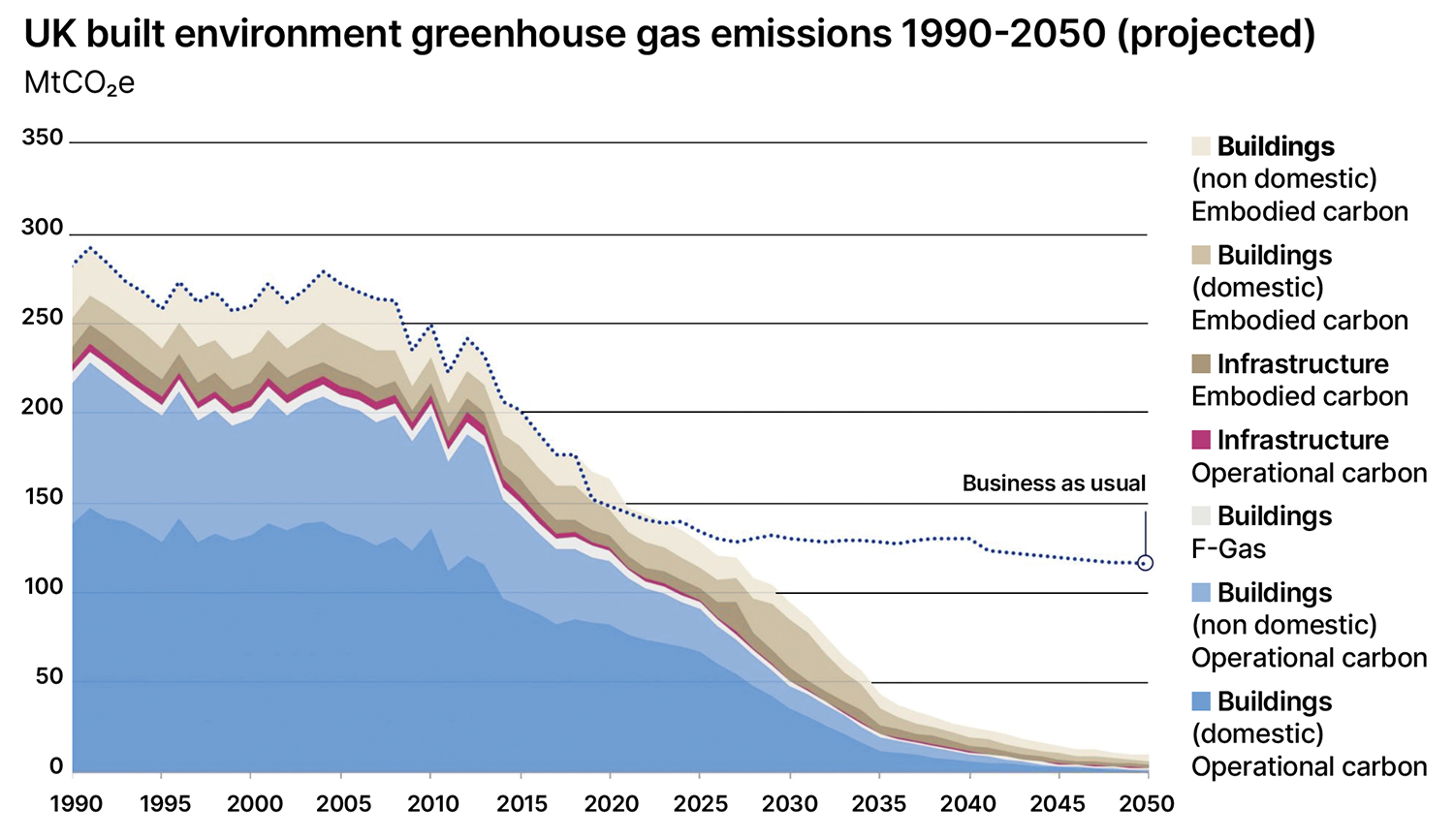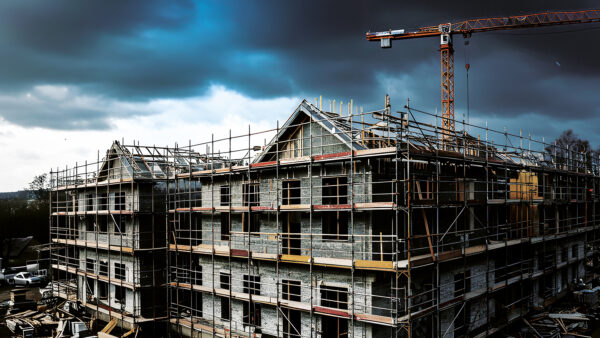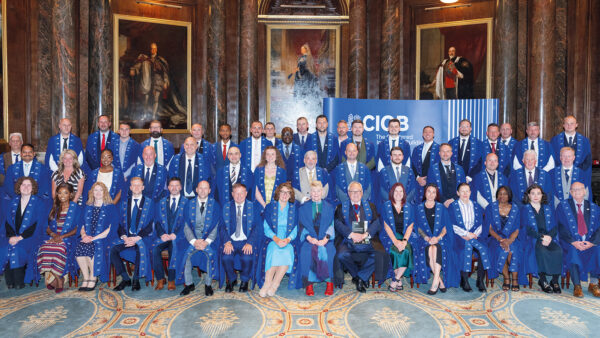
The Net Zero Carbon Buildings Standard aims to provide a single benchmark for addressing carbon reduction across the built environment. Its new chair, David Partridge, explains.
Can all the built environment’s industry bodies and stakeholders agree and adopt a common standard of measurement for net-zero carbon buildings in the UK?
The UK Net Zero Carbon Buildings Standard (NZCBS) has been created to address both the operation of our built stock and the carbon embodied through our activities in building and refurbishing it. It has been put together by a task group of industry bodies including the Better Building Partnership, BRE, Carbon Trust and the UK Green Building Council.
Without such a standard, the currently uncoordinated and myriad definitions of net zero carbon risks creating confusion among all stakeholders in the built environment industry. If this sector of the economy, which is responsible for around 40% of all carbon emissions, continues to emit carbon through its activities at the same rate as it has historically, it would single-handedly raise temperatures by +3%, double the Paris Accord targets.
This is where the Construction Leadership Council’s Construct Zero programme has a crucial role to play. Construct Zero is the sector’s zero carbon change programme, supported by over 200 companies.
My role as chair will be to ensure the NZCBS is robust and appropriate, and adopted by key stakeholders in the built environment, as well as aligned to the Construct Zero programme.
Stakeholder buy-in
The buy-in of the following stakeholders is critical to its adoption:
- the owners of, investors in and funders of real estate and the valuers and accountants who will advise them;
- the contractors and their supply chain who will be responsible for both building and retrofitting our built estate; and
- the housebuilders who serve the non-institutional market, together with the banks who will provide mortgages to that market.

The NZCBS is not looking to reinvent the wheel on carbon measurement, but rather it will work closely with internationally accepted benchmarks such as CRREM (the Carbon Risk Real Estate Monitor) and the Science Based Targets Initiative. We will be working very closely with Construct Zero in the delivery and implementation of this work.
It is imperative that society – and business – agrees on clear, consistent, transparent and universally accepted metrics that measure the impact of all of our activities on the climate and mitigate the risks associated with those activities.
From this level playing field, the market and government will be able to design the carrots and sticks which will be necessary to achieve true net zero carbon. It will also demonstrate how well this industry can work closely and collaboratively together, in the interest of society and the world.
David Partridge is chair of Related Argent and the Net Zero Carbon Buildings Standard.











